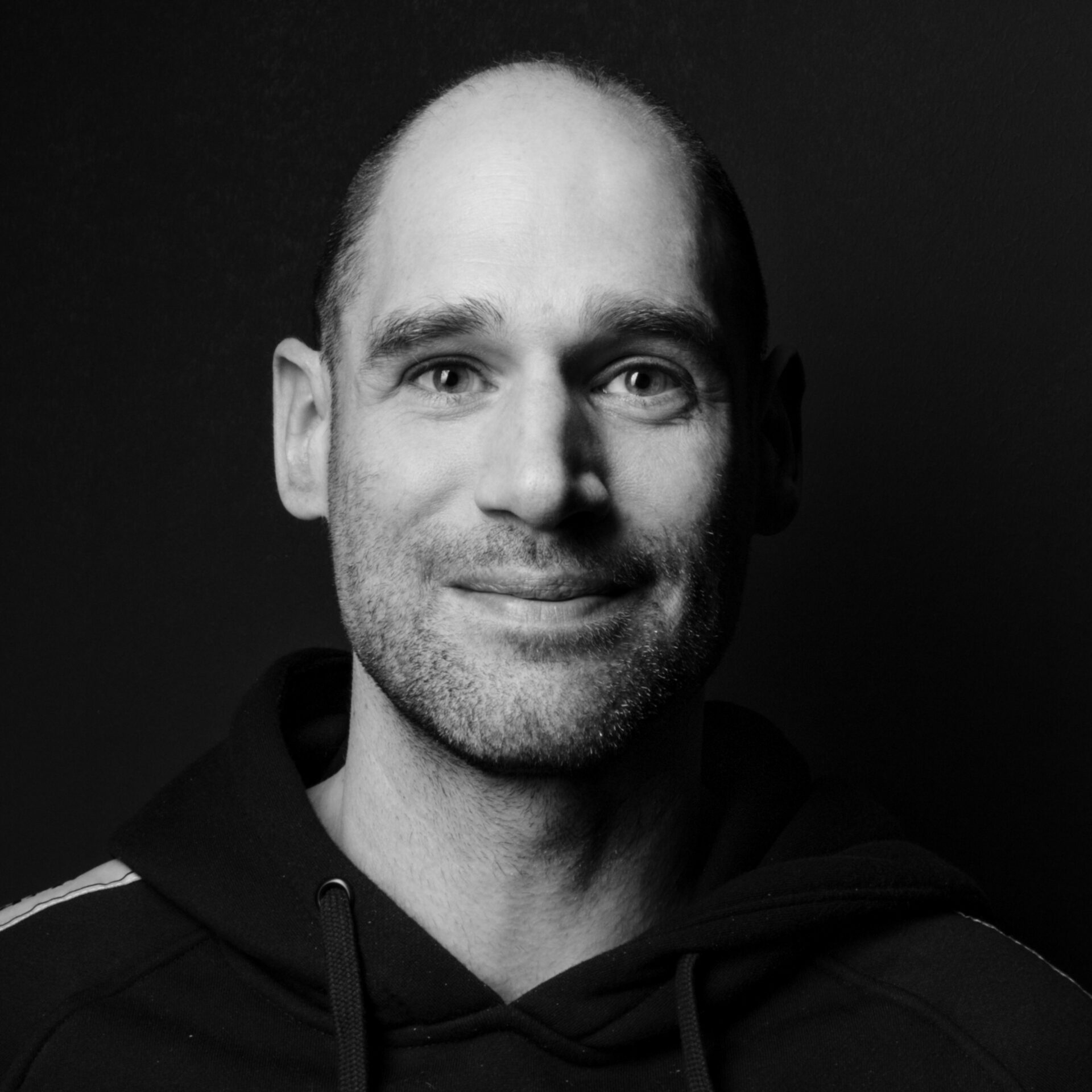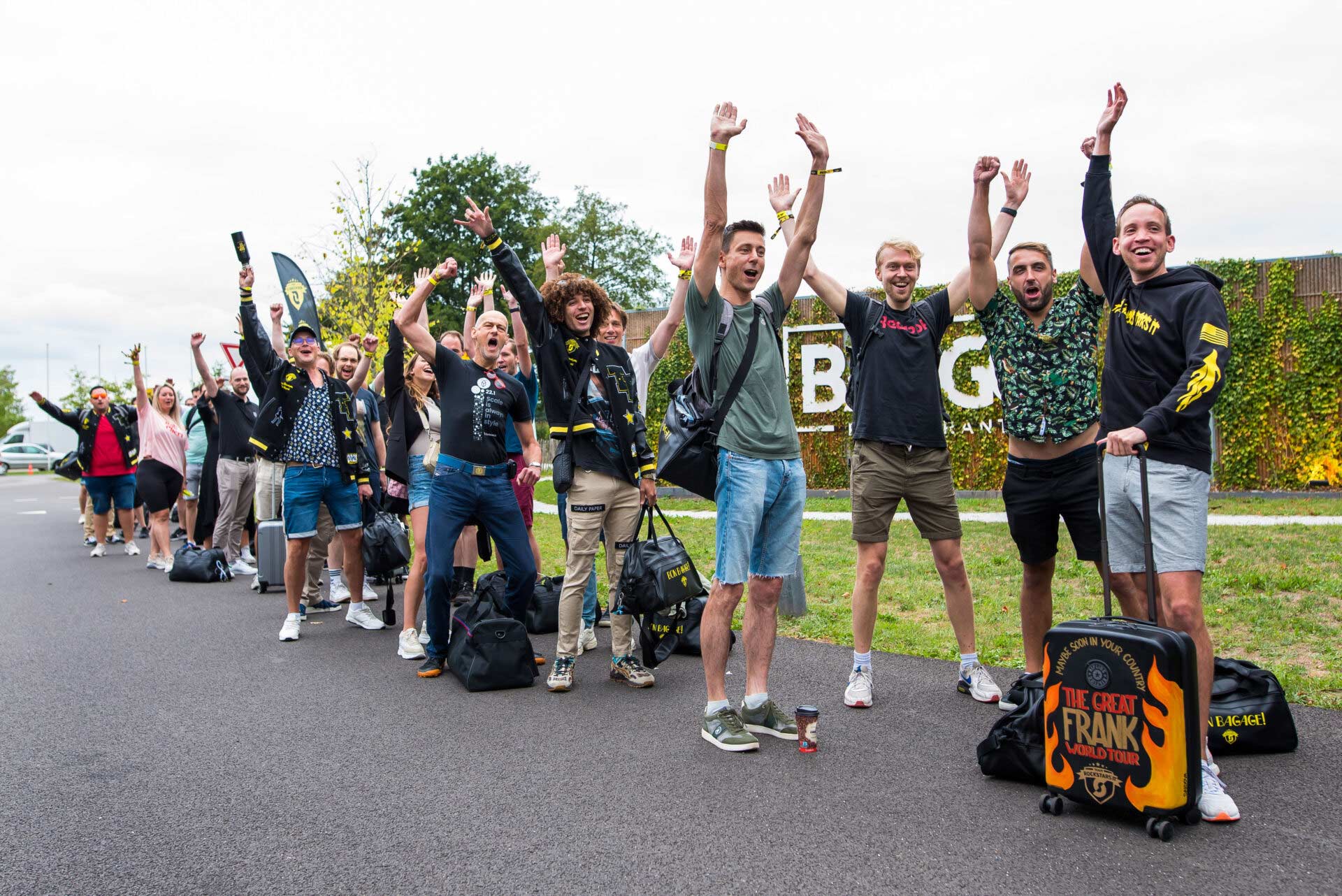Since September 2021, I can call myself one of the 375 Java Champions in the world. A prestigious title for which I worked hard for many years. Since becoming a Java Champion myself, I am frequently approached with questions. It seems like everyone wants to be Java Champion. But what exactly is a Java Champion? Why would you want to become one? What do you do when you are Java Champion? And perhaps the most important question: how do you become it?
Java Champion: Superhero or Just Man?
In 2005, Sun Microsystems came up with the concept of the Java Champion: a unique group of experienced Java technologists and community leaders. Oracle, the current owner of Java, describes Java Champions as follows: “They are leaders, influencers and enablers who help the community grow. Java Champions are active in many ways; they participate in Java projects, collaborate in Java User Group communities, speak at conferences, write, train, coach, promote inclusiveness and much more.”
There are currently about 375 Java Champions worldwide, nearly 20 of them in the Netherlands. Such an exclusive group of experts with a huge pool of knowledge and experience, that sounds like a group of superheroes! But, that’s not too bad. A Java Champion is really just a human being. But a person within a group to which many people want to belong, that much is clear. Why do people want that? It is an honor, a proof of your knowledge and skill in a particular field. Appreciation for what you have done to help others and the Java community. With only about 375 champions out of a group of millions of Java developers in the world, it is still a special title.
The Key to Becoming a Java Champion: A Step-by-Step Guide
The group decides. You must be nominated by another Java Champion who has written down all that you have done. But that doesn’t get you there. After your nomination, other Java Champions should also give it to you. So you have to make sure that people know you, that they know what you’ve done, that they like you. Then you get +1’s from other champions. And you can still easily get those +1’s by yourself by networking well. The trick is not to get -1’s. People who don’t know you should also think you belong based on your profile, and based on the way you are nominated. In the end, at the bottom line, you have to work mostly on your own. You can be coached, nominated, but you really have to do it yourself.
There is no checklist available with things you must have “done” before you can become Java Champion. As stated in Oracle’s quote above, you must “be active in many ways”; participating in projects, speaking at conferences, writing articles. That putting yourself in the spotlight is not second nature to everyone. We are all developers, and those are generally more subdued personalities. But no concessions will be made on the conditions for becoming Java Champion. It may happen that you do a lot for the community, but if you don’t or won’t put yourself in the spotlight, you won’t become a Java Champion. We can then make that person Java Champion, but nothing will probably happen with it. You become a Java Champion because you really want something and can carry it forward.
In that sense, the Java Champion program is really different from, say, Microsoft’s MVP program. MVPs are trained much more commercially and it is much clearer what conditions you must meet to become an MVP. There are clear rules what you can and cannot say about Microsoft, and on top of that, you have to renew your title every year. People often draw the similarity between Java Champions and Microsoft MVPs, but really that’s comparing apples to oranges.
My Transformation: From Chef via LAN-Parties to principal consultant
As a little boy, I wanted to be a chef, or a train engineer. The idea of doing “something with computers” came later. I do remember there was always a big computer in our parents’ house, and a man with a very large sports bag full of bins of floppy disks would come by to fix the computer and install games for me. In addition, somehow I was always the one who connected the network cables at LAN parties. So when I was around 14
e
started thinking about the future, I decided to take an MBO course in Network Administration. After three years I moved on to college, and in the transition year I had one lesson in programming. I see that teacher opening a browser, a button and an input box. “See, and now if I do this, I can show what I type in here on a label there and give it colors.” That was enough. I immediately switched to Software Engineer training, and became a developer.
In 2007 I stuck with my internship company and decided not to continue studying but to continue learning on the job. From developer I grew to Software Architect, to consultant and to manager. I kept rediscovering myself. Where do I get energy from? I want to fix problems. If people really don’t get it anymore, I’m happy to show up and see if I can still make cheese out of it. Over the years, I also started sharing my knowledge in a blog, at conferences, in articles and within the Java community. And that’s how I was introduced to the phenomenon of Java Champion.
The route to java champion
I developed strongly in the field of Java EE over the years. In May 2018, I had just finished a year of speaking at conferences, so I was already quite visible, but collaborating on Open Source projects I had not yet done. Why could I do that, participate in a project that so many smart people are already working on and doing so many great things? I also had no idea where to start.
At a conference, I met Java Champion Emily Jiang, working at IBM, who gave a talk on Enterprise Java. Afterwards, I got into a conversation with her and she convinced me that I needed to share my knowledge much more. She clearly believed in me. She then started coaching me, adopted me into the community and encouraged me to speak my mind and contribute. I thought “yeah, I can try that, maybe I’ll learn something”. It was really a conscious decision to start focusing myself on community involvement.
Initially, I was mostly interested in the stories of other Java Champions. What had it brought them? But soon I took the plunge and asked within the group if people thought it could also be something for me. It seemed like a nice title, a nice appreciation for all the time and effort I put into the community – both in my work and my free time.
And then it happened. I came home after an evening of sports and I had missed 100 Twitter notifications. What transpired? I was there! I had become Java Champion.
Living Like a Java Champion: What Happens After You Earn the Title?
Basically, from the moment you are Java Champion, you could sit back. You are Java Champion for life, so you don’t have to do anything more. There is also no one saying you have to speak at certain conferences or write certain articles. You do it because you want to. Or not. But then again, why did you become Java Champion?
The Java community works by people who want to do things proactively. Everyone has a strong intrinsic motivation. For me, that motivation is very clear: Because I like to share knowledge, solve problems and work with people. That all comes together there. I can take beautiful trips, see the world, talk to people, impart knowledge and, of course, gain knowledge. Community involvement is a hobby for me, but I can now combine it perfectly with my work. The knowledge I gain through my role in the Java community also makes me more valuable in my work as a consultant. I know so much now, partly because I’m doing all this. Otherwise, I would have been a Java developer with a lot of knowledge, but nothing extra, like my vastly improved soft skills.
It is important that you decide for yourself how you want to proceed after becoming Java Champion. For me, for example, that is continuing to speak. Currently I am at foreign conferences five to ten times a year, I also speak five to ten times in the Netherlands and practically on a biweekly basis with clients. It used to be more, but that no longer fits my current situation, both business and personal. Because all that traveling is beautiful, but also intense. Last year I flew to Chicago on Monday, back home on Thursday, then to Belgium for a week and then back to Las Vegas from Monday to Friday. After that it was done, though; then I couldn’t explain it to my family – and to my employer, for that matter. So now I’ve become a little more selective, but what it gets me still outweighs the effort. The moment I feel like I don’t want to fly to America for a conference because it’s not worth it, I’m not going to do it. But as long as I feel the energy, I just go.
Are Java Champions also uncertain at times?
Uncertainty does not necessarily disappear with the title of Java Champion, but it does disappear with the years of experience I now have. I also dare to speak my mind more within the group, about potential new Java Champions or about projects. That I dare to do that, within a group of some 375 very good people who often know much more than I do in many areas, that does mean that the uncertainty is gone.
The community treats each other very respectfully. It’s always about the content, basically never about the person. I am not averse to trying things sometimes, which I then ask for feedback on. And then sometimes it comes out that it was just a really bad idea. I then put that aside and hope no one comes back to it ;). That’s also part of growth, you learn from that again.
Healthy excitement of being on stage remains, but there is one thing I really hate: Reading reviews of my sessions. I also do it too little. I could get a lot out of it if I did, but man. Especially on Youtube, people are not so subtle because they can be nice and anonymous. But such people are also present at conferences.
I once held a session at a conference, and afterwards I got the voting results in, of how people liked it. Among them were some green voices, very positive, some slightly less green, still positive. Then there was nothing for a while, and then some red ones came, score 1 of 10, and there was nothing there. So I couldn’t do anything with that. I spent a long time trying to understand what this was because of, but I have also since learned that some things should not be tried to understand or solve. Learning to focus on things that do matter is another piece of experience that you develop over the years.
What ambitions remain as Java Champion?
Above all, I want to touch even more people, help even more (large) companies, become even more strategic. And continue to speak. I’m not done in the community yet. People apparently really see me as an expert.
A book is coming out, “Developer Career Masterplan,” by two of the most active people in the community whom I respect tremendously. They asked me to read and review that book. And what does it turn out to be? I am input for a chapter in that book. They figured out that my knowledge and what I put out would be valuable for a book they wrote. That took some getting used to!
finally
Do it because you want to. If you feel like you have to network with people, you’re not going to like it, you’re not going to approach those people the right way, and you’re not going to be known in the community the right way. Then by all means go do something else, or start liking it somehow, as I did. Stay with yourself. If it is your passion, then it comes naturally, out of you and you can do an awful lot for others as a Java Champion.
Want to spar further about Java Champions and see if it could be for you too? Contact me, I’d love to tell you (even) more!
5 TIPS FOR ASPIRING JAVA CHAMPIONS



